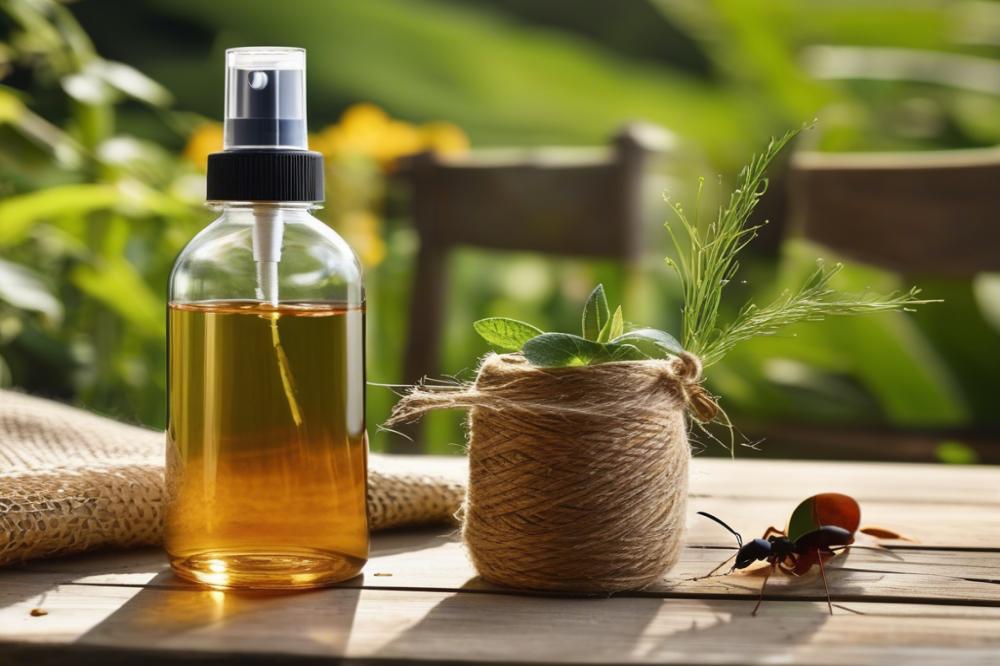Introduction
The growing interest in organic pesticides highlights a critical shift in how we manage pests. Traditional methods often rely on harsh chemicals that can harm the environment and our health. In contrast, natural pest control offers a safer alternative. Using eco-friendly solutions, like a vinegar-based insect deterrent, provides effective pest management without the negative side effects of synthetic products.
vinegar ant spray is becoming a popular choice among homeowners seeking a home remedy for ants. This simple mixture can help keep your space free from pesky intruders. It works by disrupting the scent trails ants use to communicate and navigate. This lack of communication often leads to confusion, encouraging them to leave the area.
Opting for homemade pest solutions not only benefits individual gardens but also contributes to a healthier ecosystem. Sourcing your ingredients for a DIY insect spray can be both cost-effective and satisfying. Plus, using non-toxic ant spray protects beneficial insects and reduces pollution. Choosing natural approaches fosters a sustainable environment that can thrive without harmful substances. Embracing these methods, you can cultivate a pest-free space with greater peace of mind.
Understanding Ant Infestations
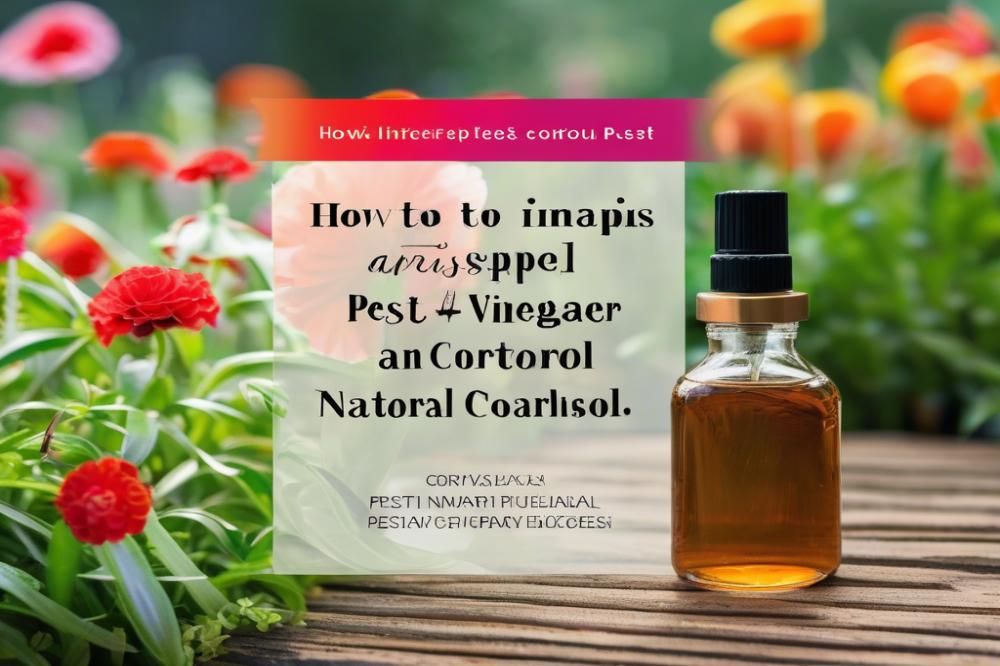

Gardens often attract various types of ants. Carpenter ants and fire ants are common culprits. They can create sizable nests and damage plants. Other species, like sugar ants, seek out sweet substances, while leafcutter ants are notorious for their plant-cutting behaviors. Knowing the species helps in managing them effectively.
Several reasons can lead to ant infestations in gardens. Food sources, such as fallen fruit or spilled sugar, easily pull ants in. Wet soil also attracts them, as they prefer moist environments for nesting. Additionally, gardens near trees may provide shelter and an entry point. Understanding what draws them can help gardeners prevent invasions.
Addressing ant problems early is crucial. A small colony can quickly grow into a larger one. Ignoring the problem may lead to significant damage to plants and soil. Early intervention can save time, as well as resources. Using natural pest control methods, like a DIY insect spray, offers a way to eliminate ants without harmful chemicals.
A vinegar solution acts as a non-toxic ant spray. This home remedy for ants can disrupt their trails and help repel them. An effective insect deterrent is essential for keeping gardens thriving. Eco-friendly pest control options are increasingly popular among gardeners. With a little effort, creating homemade pest solutions can be easy and rewarding.
Effective vinegar cleaning around the area can make a difference too. It removes food residues that attract ants. Keeping a clean garden is a simple yet powerful way to deter these invasive pests. By taking proactive steps, gardeners can enjoy their space without the worry of ant infestations.
Benefits of Using Vinegar as an ant control Solution
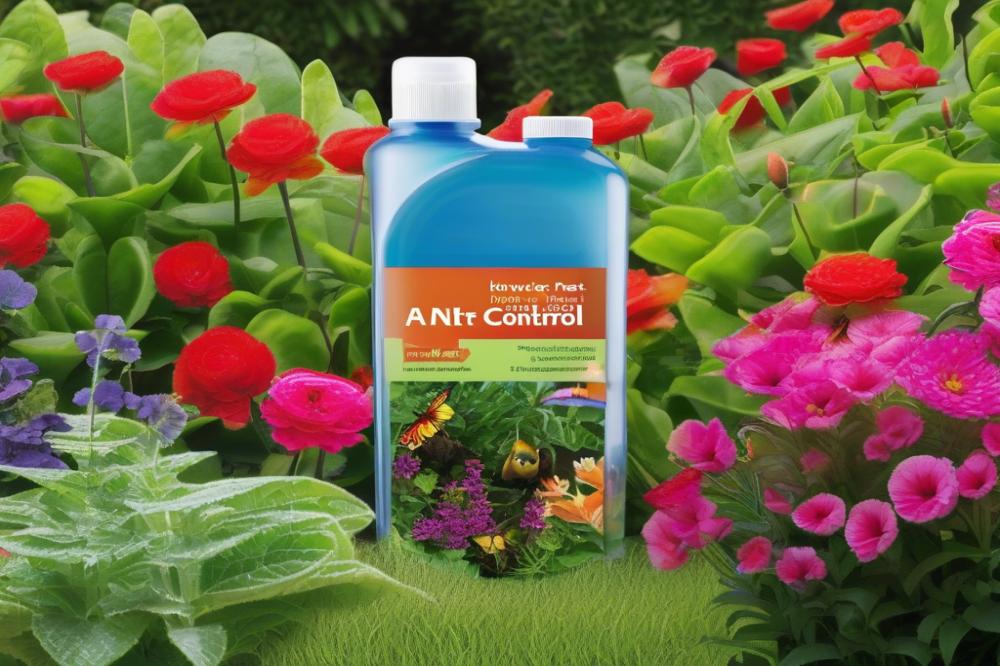

Many individuals seek a natural pest control option for their homes. Vinegar serves as an effective method for managing unwanted ant populations. This simple solution is a powerful alternative to traditional methods.
The vinegar solution works by masking the scent trails ants use to navigate. Without these trails, ants struggle to find food and return to their nests. Homeowners appreciate how quickly and easily this DIY insect spray can be made.
Using vinegar offers several advantages over chemical pesticides. First, it is non-toxic, making it safer for children and pets. They can play in treated areas without worrying about exposure to harmful chemicals. This enhances peace of mind for families prioritizing safety.
Another key point is the cost-effectiveness of homemade pest solutions. Families can often create a substantial amount of ant repellent with just a few ingredients. A vinegar cleaning solution is also versatile; it can do more than repel insects. It acts as a disinfectant for various surfaces, too.
Eco-friendly pest control is increasingly important in today’s environment. Using vinegar limits pollution and chemical runoff, which can harm wildlife and plants. Furthermore, opting for a natural approach supports sustainable living practices.
This choice positively impacts local ecosystems. Unlike commercial insect deterrents, vinegar doesn’t leave behind harmful residues. People seeking effective and responsible ways to manage pests find this home remedy for ants both convenient and beneficial.
Ultimately, choosing a non-toxic ant spray benefits everyone. It protects your home while being kind to the Earth. Embracing natural solutions can pave the way for healthier living spaces and communities.
How to Make a Vinegar-Based Spray for ant control
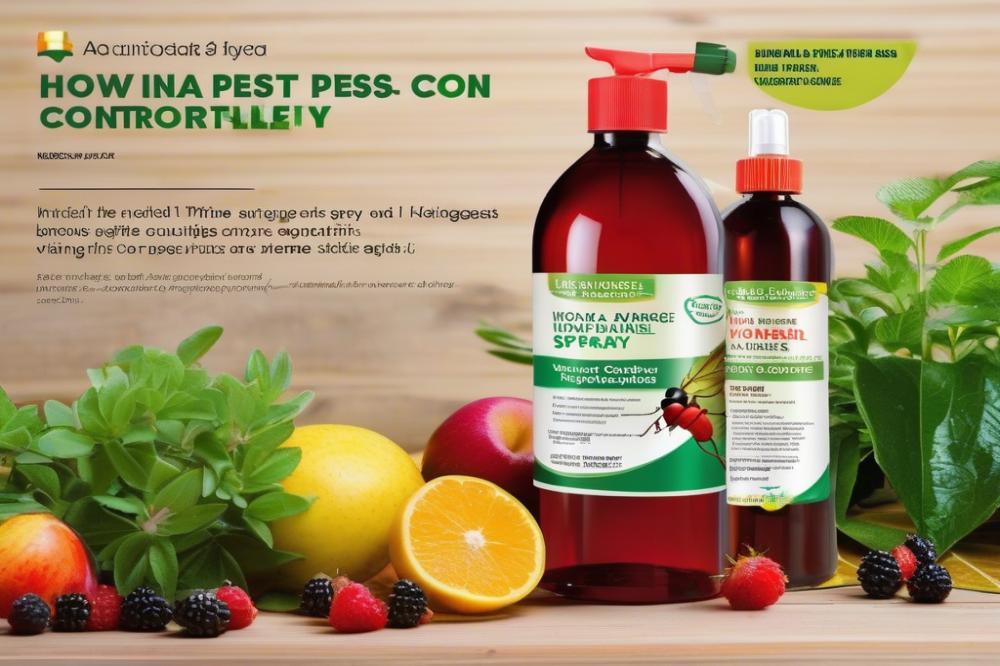

Required materials for DIY insect spray
Gather the right supplies before you start creating your non-toxic ant spray. You will need white vinegar, water, a spray bottle, and a funnel. Optionally, you can add a few drops of dish soap or essential oils for extra effectiveness. Some people like using peppermint or tea tree oil due to their natural pest control properties.
Step-by-step instructions for creating the vinegar solution
Start by mixing one part vinegar with one part water. For example, if you use one cup of vinegar, add one cup of water to it. Use the funnel to pour the mixture into your spray bottle. Shake it gently to blend the ingredients together. If you choose to add dish soap or essential oils, mix those in at this point. Once everything is well combined, you’re ready to spray.
Recommended vinegar concentration for effective ant repellent
A 50/50 mixture is ideal for effective ant repellent action. This concentration works well because the vinegar’s strong scent disrupts ant trails and deters them from entering your space. If you notice that ants are particularly stubborn, you might increase the vinegar ratio to two parts vinegar and one part water for a more potent mixture.
Tips for storing and using the homemade pest solution
Keep your homemade pest solution in a cool, dark place to maintain its potency. Shake the bottle before each use to ensure that all ingredients are well mixed. Spray the vinegar solution directly on ants you see or around their possible entry points. Be sure to reapply after rainfall or if the solution dries out. This eco-friendly pest control method is safe for use around pets and children, making it a great alternative to harsher chemicals.
Consider using this vinegar cleaning mixture on surfaces where you’ve spotted ants. It not only helps deter them but also serves as a great insect deterrent. Remember, consistency in application leads to better results!
Application Techniques for vinegar ant spray
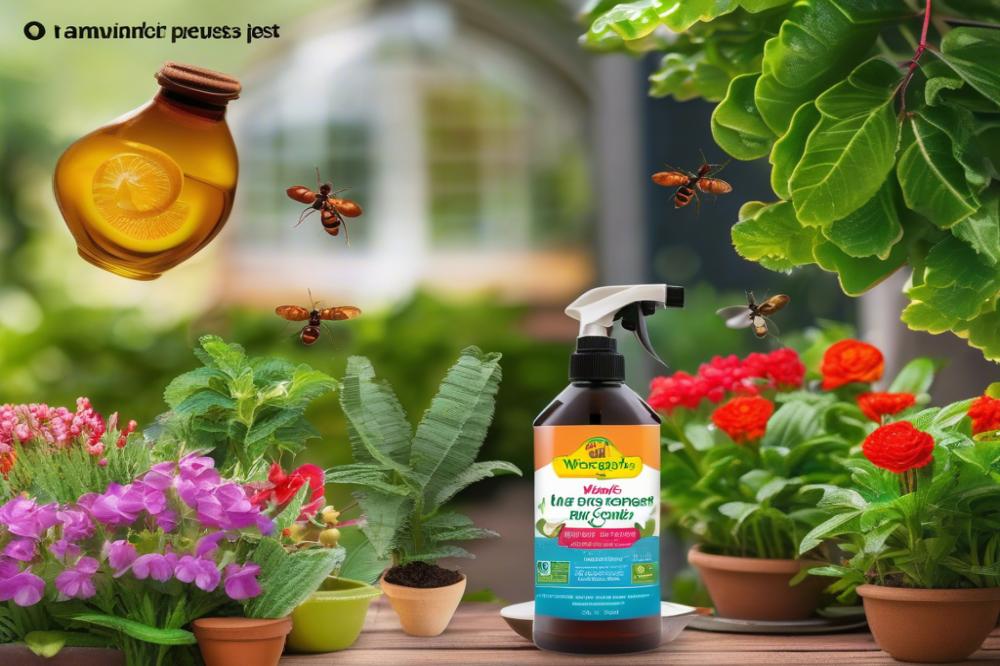

Best Times to Apply the Spray for Maximum Effectiveness
Spraying in the early morning or late afternoon is ideal. Ants are most active during these cooler times. Apply your homemade pest solutions when temperatures are mild. This approach helps the vinegar solution penetrate more effectively. Avoid spraying during intense heat or rain. Both factors can dilute the effectiveness of your non-toxic ant spray.
Locations to Target Within the Garden for Ant Control
Focus on areas where you notice ant activity. Popular spots include near anthills, along garden paths, and near patio furniture. Don’t forget to treat plant bases and around potted plants, as ants often seek shelter there. Inspect for trails leading to food sources; these should be treated thoroughly. Plants that are frequently disturbed by ant activity also require attention.
Precautions to Take When Using Non-Toxic Ant Spray
While this method is eco-friendly, caution is still necessary. Vinegar can harm some plants, so avoid applying it directly on foliage. Always test the spray on a small plant area first. Additionally, keep the solution away from beneficial insects like bees and butterflies. The vinegar cleaning properties may irritate skin, so wear gloves. Finally, store your DIY insect spray out of reach of children and pets. A little care goes a long way in using this home remedy for ants safely.
Additional Home Remedies and Tips for Ant Management
Enhancing the effectiveness of your vinegar-based ant spray can be achieved with other natural ingredients. For instance, adding a few drops of dish soap can help the vinegar solution stick to surfaces better. Cinnamon is another option. Ants dislike its strong scent, making it a great natural pest control agent. Combining cinnamon with vinegar creates a dual-action approach against these pests.
Companion planting serves as another excellent strategy for pest management. Certain plants can deter ants while attracting beneficial insects. Marigolds are known to repel a variety of insects, including ants. Additionally, herbs like mint can act as ever-present insect deterrents. Planting these near your home can create a natural barrier against ant invasions.
Cleanliness goes a long way in preventing ant infestations. Regular cleaning with vinegar cleaning solutions can eliminate food residues and scents that attract ants. Keep your countertops and floors free of crumbs. Wipe down surfaces frequently to remove any traces that might lure the pests back into your home. This simple practice is essential in creating a pest-free environment.
Using homemade pest solutions like a non-toxic ant spray helps minimize exposure to chemicals, making it safer for families and pets. When ants do enter your space, a mixture of vinegar and water can serve as an effective DIY insect spray. It’s easy to prepare and can help manage the situation quickly. Always remember that prevention is key; keeping your living areas tidy and using natural remedies can make a significant difference.
Wrapping It Up
The advantages of using a vinegar-based solution for ant control are numerous. This simple mixture is not only effective but also non-toxic, making it a safe choice for homes, particularly those with pets and children. With its natural ingredients, it represents an excellent alternative to chemical pesticides, aligning well with the principles of natural pest control.
Exploring homemade pest solutions can be empowering. As you try your hand at crafting a DIY insect spray, you’ll discover that managing pests doesn’t always require store-bought options. Some creativity and a few common household ingredients can go a long way in keeping your space free of unwanted insects.
Take a moment to think about the impact of your gardening practices. Maintaining an eco-friendly garden environment not only benefits your plants but also enhances the local ecosystem. By opting for organic methods, like using vinegar, you contribute to a healthier world. Making small changes in how you approach pest control can lead to significant benefits for you and the planet.

